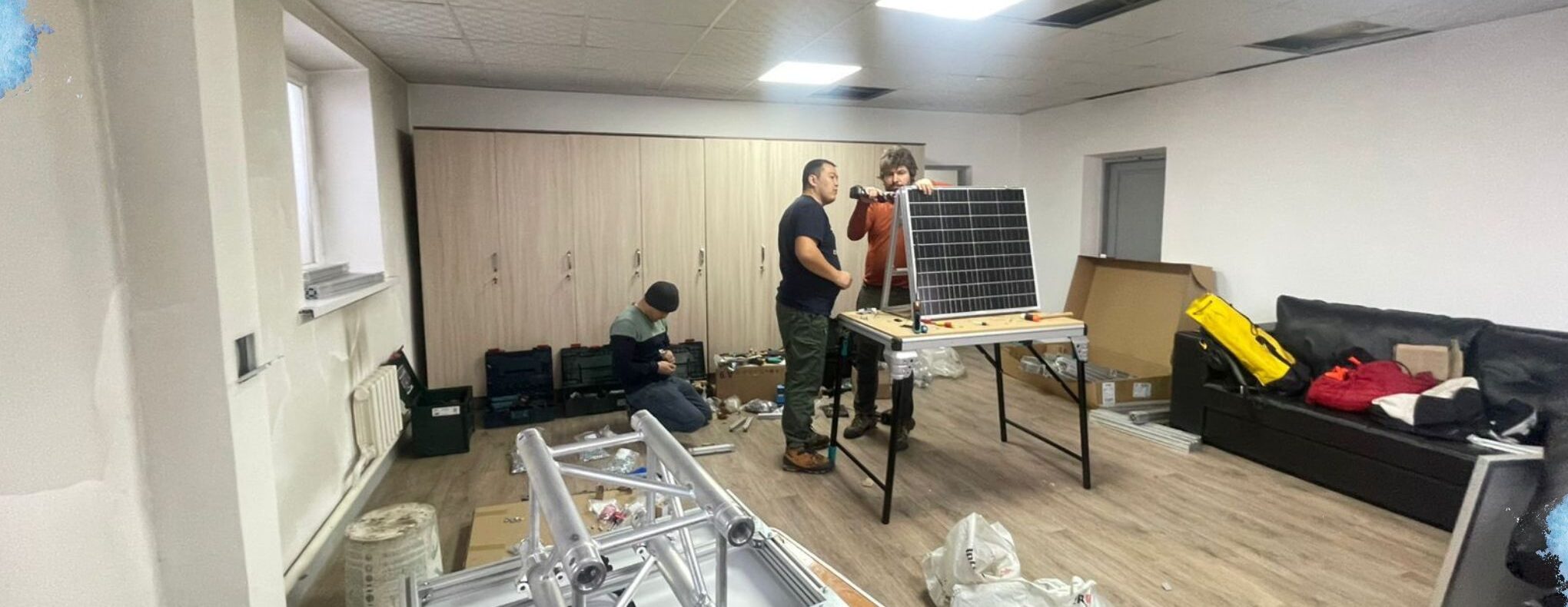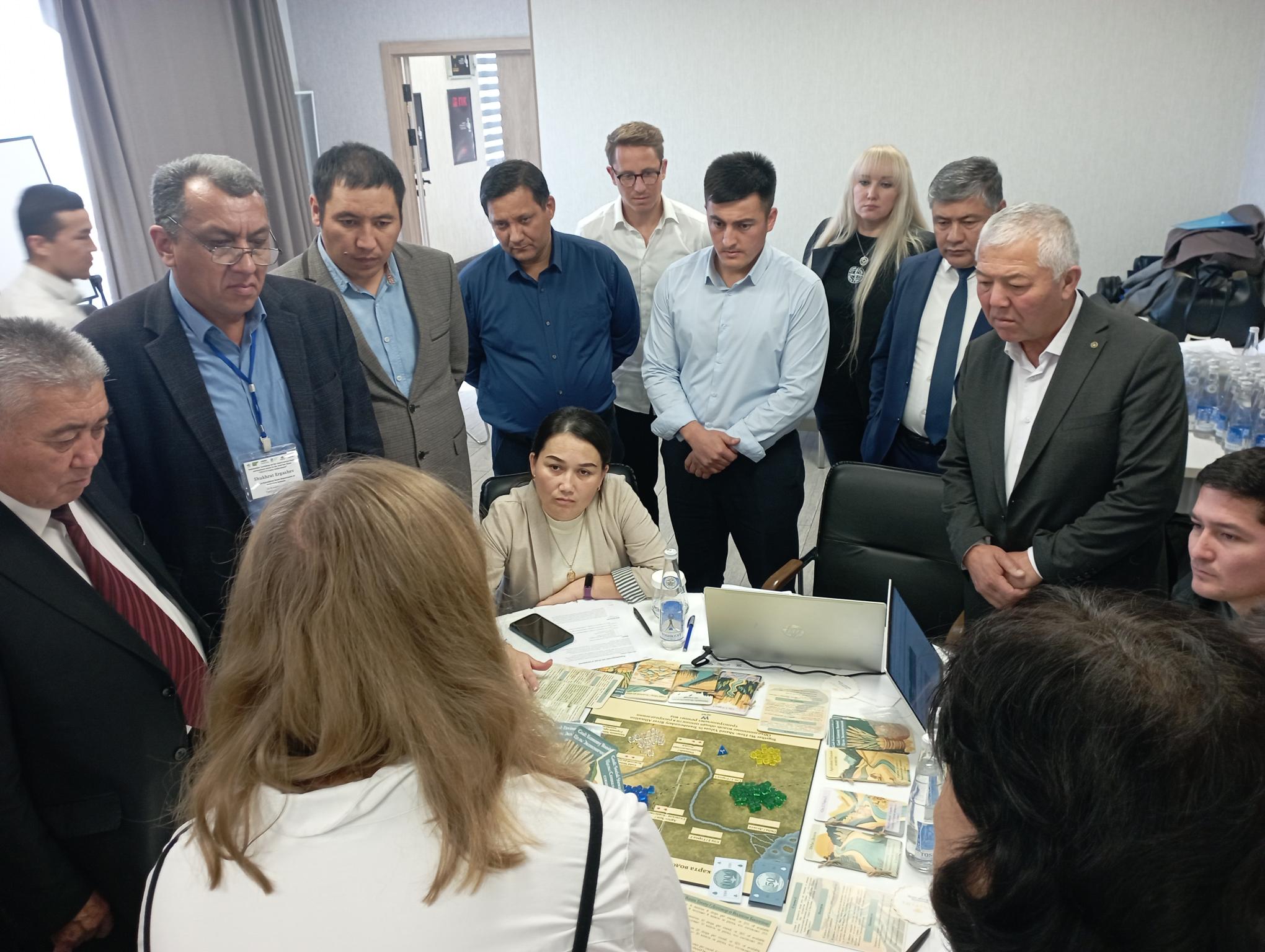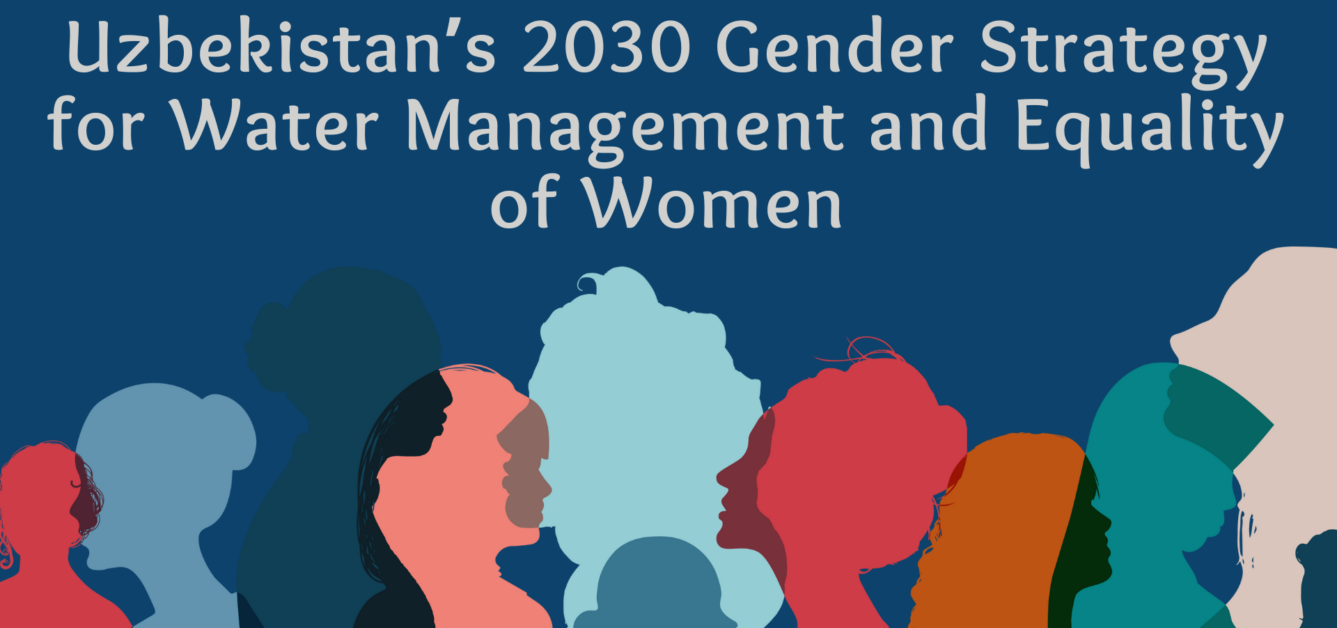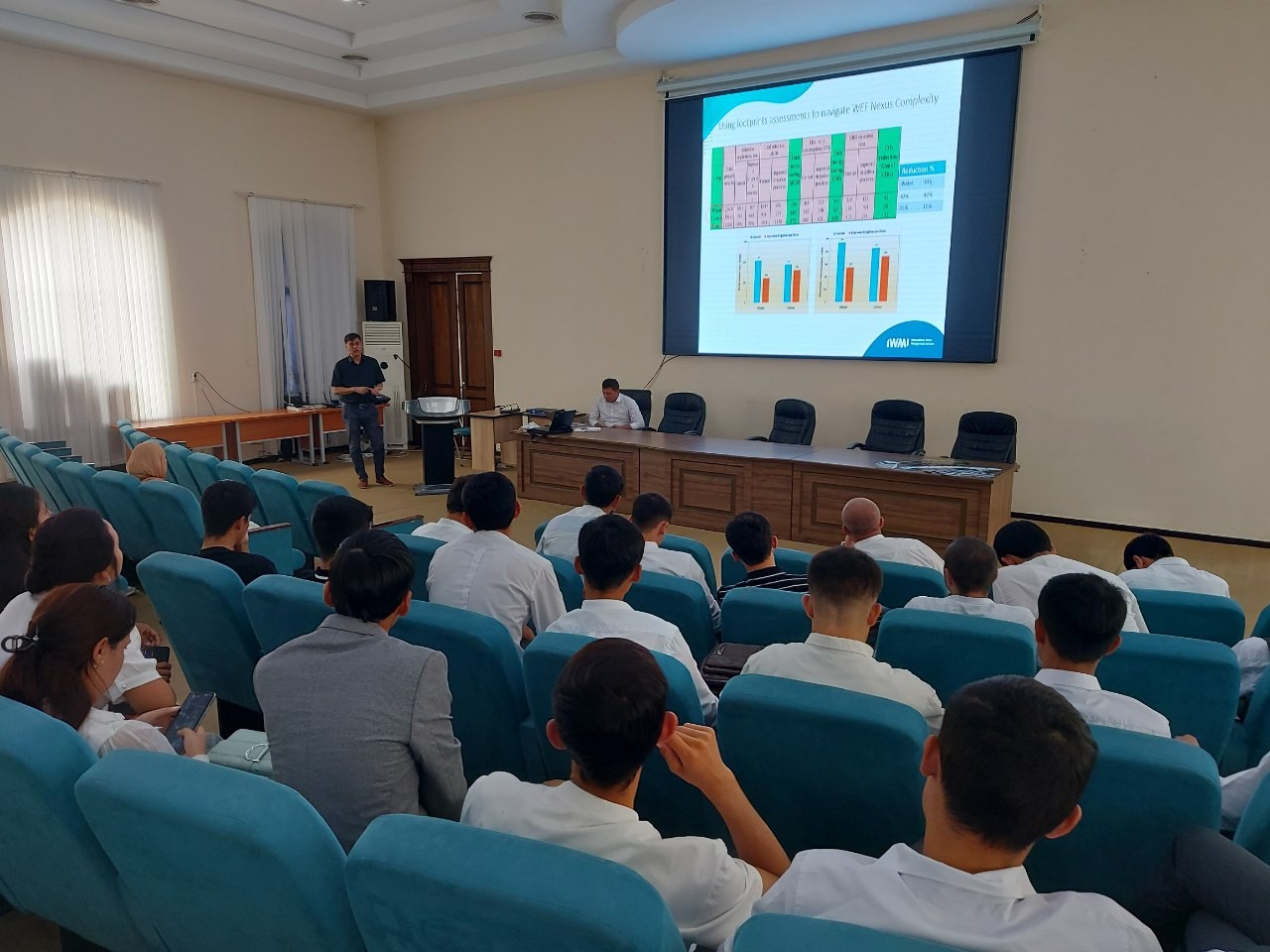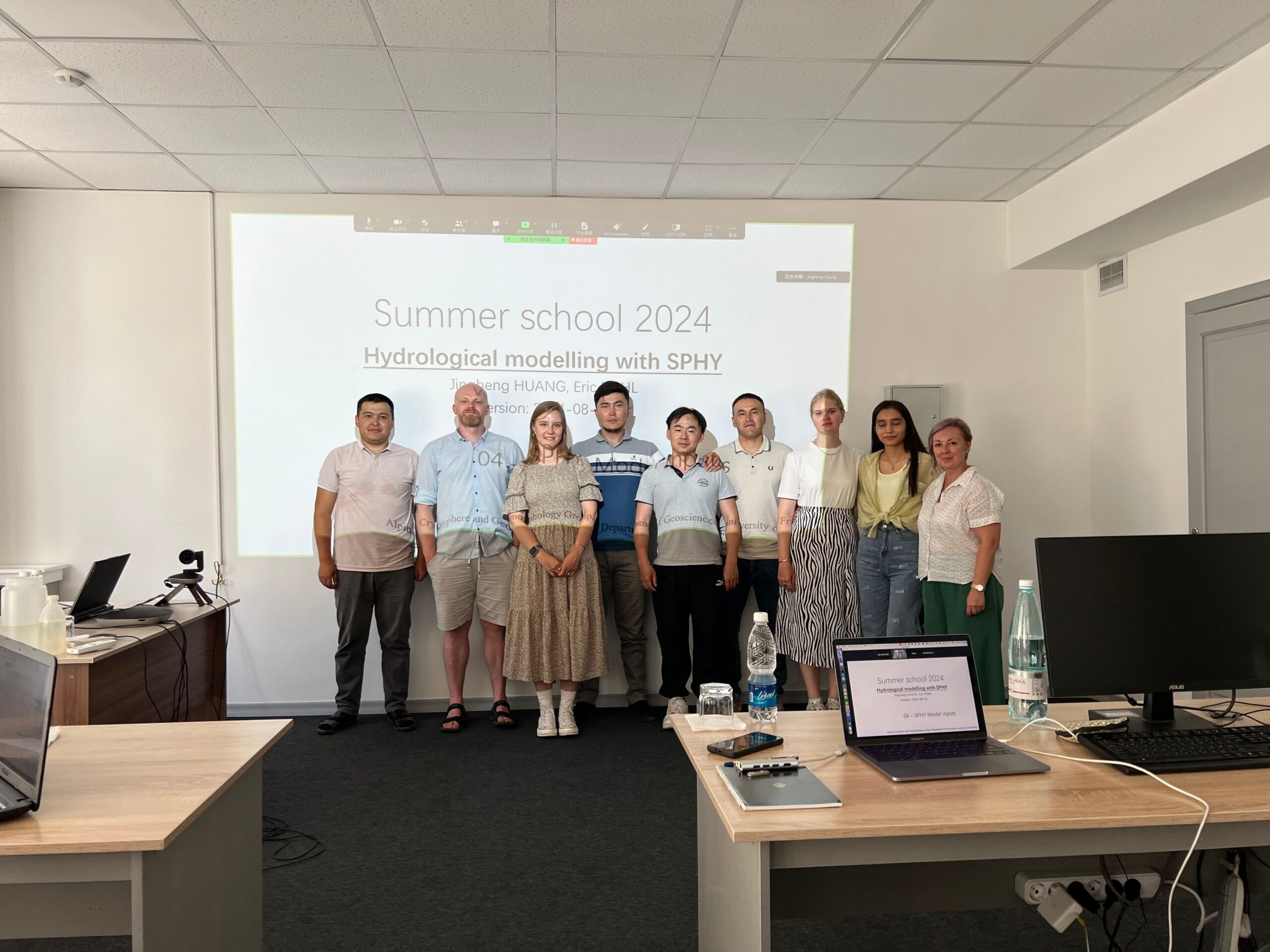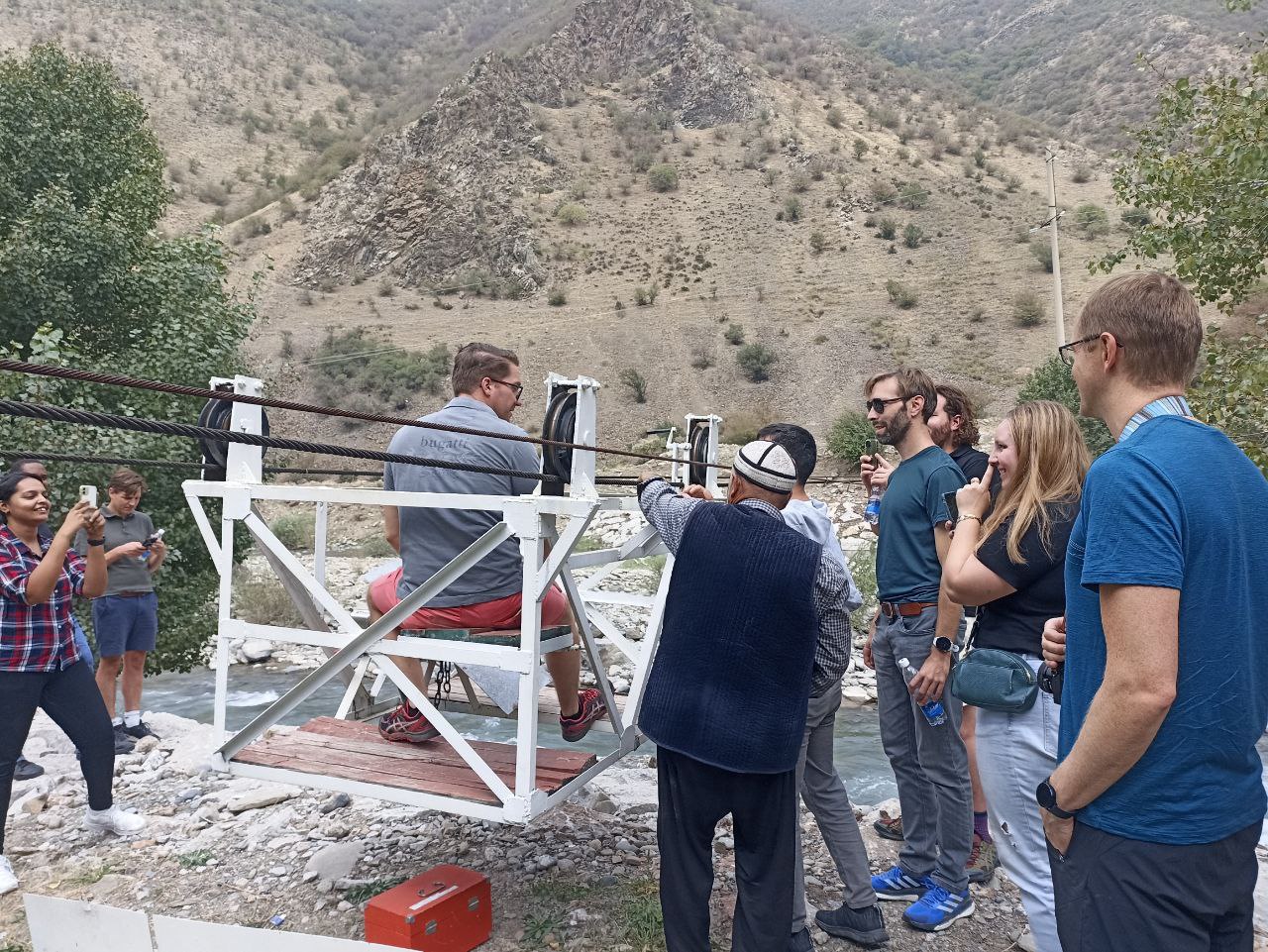Transboundary water management is a pressing issue in Central Asia, where rivers like the Syr Darya, Naryn, and Karadarya are lifelines for millions.
The Syr Darya River, flowing through Kyrgyzstan, Uzbekistan, and Kazakhstan, along with its major tributaries, the Naryn and Karadarya, provides essential water for agriculture, industry, and households. However, with the dual challenges of climate change and growing demand, efficient and sustainable water allocation has never been more crucial. Transboundary collaboration between Kyrgyzstan and Uzbekistan is essential in this context, as both countries rely heavily on the Syr Darya for irrigation and hydropower.
The WE-ACT project stands at the forefront of this challenge, driving a new era of transboundary water allocation. By fostering open dialogue and connecting stakeholders across borders, WE-ACT aims to set a benchmark for sustainable water practices in Central Asia.
Over the past 18 months, partners have actively engaged stakeholders through various meetings and workshops, creating a collaborative platform for knowledge exchange. Local partners, including IWMI Central Asia and CAIAG, have provided significant support in connecting and including the region’s stakeholders. Partners also conducted comprehensive user mapping for our Decision Support System to fine tune the solution according to their needs, discussing topics such as:
- Current decision-making process
- Information exchange between organizations
- Sector-wise water management
- Frequency of natural disasters
- Water allocation – current system
- Existing legislations and policies
- Challenges in decision making for water allocation
- Perception of water
- Transboundary cooperation
- Existing conflicts
These efforts have united stakeholders from Uzbekistan and Kyrgyzstan, fostering cooperation to tackle shared challenges. Key highlights include:
- Stakeholder Consultation Workshop/Training: Centered on “Efficient Allocation of Water Resources in the Syrdarya River Basin amid Climate Change,” this workshop enabled stakeholders to discuss strategies and share insights.
- Hydromet Network Improvements Meeting: Facilitated critical discussions on enhancing meteorological and hydrological networks for improved water management.
- Site Visits: Direct engagement with stakeholders in their environments to better understand their needs and perspectives.
IWMI Central Asia Staff Meeting in Naryn (Kyrgyzstan): Convened stakeholders to address regional water management issues and explore potential solutions. - Stakeholder Workshops: A series of workshops on “Water Resources in Central Asia under a Changing Climate” facilitated discussions on climate impacts and adaptive strategies.
- WE-ACT DSS Co-Design Workshop: Collaborated with stakeholders to design a decision support system tailored to the region’s needs.
- Meeting with the Dutch Central Asian Consulate (Astana, Kazakhstan): Strengthened international collaboration and support for water management initiatives.
- Projections of Extreme Precipitation and Temperature Changes: Discussed the latest research and its implications for regional water management.
A basis for jointly managing water resources is created through WE-ACT’s ambition to bring the involved parties from different countries to the same table. These discussions aim to recognise water usage issues, and the influence of the climate in Central Asia is the need of the hour. Thus, WE-ACT’s aims are to lay the groundwork for the application of climate-resilient and data-driven decisions to water management not only in the Syr Darya, Naryn, and Karadarya rivers but also in other rivers, while also aligning with European values of cross-regional collaboration and shared governance.





